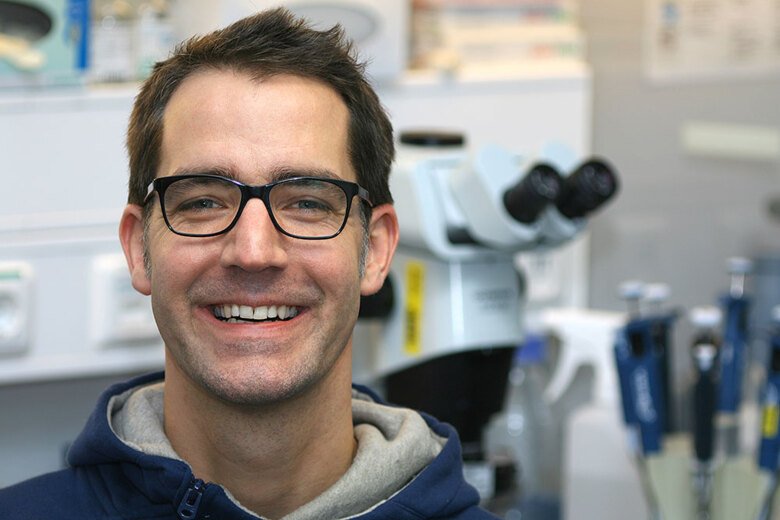MD/PhD alumnus Oliver Söhnlein builds a successful academic career at 35
Name: Oliver Söhnlein
Degree: PhD at the Department of Physiology and Pharmacology
Graduation year: 2008

Tell us your story!
During my medical studies, I spent a 6 month research internship in the lab of Lennart Lindbom at the department of Physiology and Pharmacology. At that time, I was very much attracted by Sweden as a country, by Stockholm as a very lively city, and by the great possibilities KI has to offer. After completion of my medical studies 2 years later, I had to make the choice between clinical work or the continuation in science. Since I enjoyed my time at KI during my previous stay so much, I decided to return to KI.
During my PhD studies I reached out to well-known professors in Germany to discuss possibilities for after my return to Germany. My former mentor and supervisor at the university where I studied medicine gave me the advice to contact Prof. Weber, a well-known figure in the field of cardiovascular research.
He had just published a landmark study on a field closely related to what I was working on and that is how he got interested and offered a position as PI at his institute. Thus, after I defended my thesis at KI, I turned down offers from much more attractive places, including post-doc positions in Berlin and Munich, and instead joined the IMCAR in Aachen in 2008. In retrospect, this was the best decision I could make and there was certainly a lot of luck involved.
When I started in Aachen, Christian Weber's Institute was evolving so much and funding was abundant. Within 2 years, I lead a group of 5 people and was able to publish my first last author paper in Circulation. Our Institute moved from Aachen to Munich in 2011, another important development, as Munich is considered to have Germany's best research environment.
In early 2011, it had become obvious that a Professor position would possibly become available in Munich, but in-house recruitment would not be possible. Instead I applied for own position funding outside Germany, and was able to acquire the VIDI grant in the Netherlands. With this grant, I was able to start a group of 3 scientists at the AMC in Amsterdam in 2012 and it allowed me to be recruited as full professor for Vascular Immunotherapy in Munich in 2013.
KI offers great possibilities in fields I was not yet very familiar with, including neuroscience, stem cell biology, regenerative medicine, and metabolism including diabetes. I would love to include some of these aspects into my research at KI. Much of my research at KI would be third-party funded and hence it is important to convince funding agencies. This is mostly done by the continuation of what you do rather than by something too far off your expertise - funding agencies often put the question of feasibility first.
It will take time to implement the many possibilities KI offers into my research projects. In addition, we learned a lot of intravital microscopy to study leukocyte trafficking in different organs. As this was a technique not available at KI, I established this technique and also made this available to groups interested within. It should be rather easy to adapt our protocols from leukocytes to stem cells for example.
What is your advice to young researchers
I think it is very important to be dedicated, more so than in many other professions. To me research is not a normal job and if you think it is, you are not going to be successful. The development of ideas, projects, and methods costs time - but it is a lot of fun.
